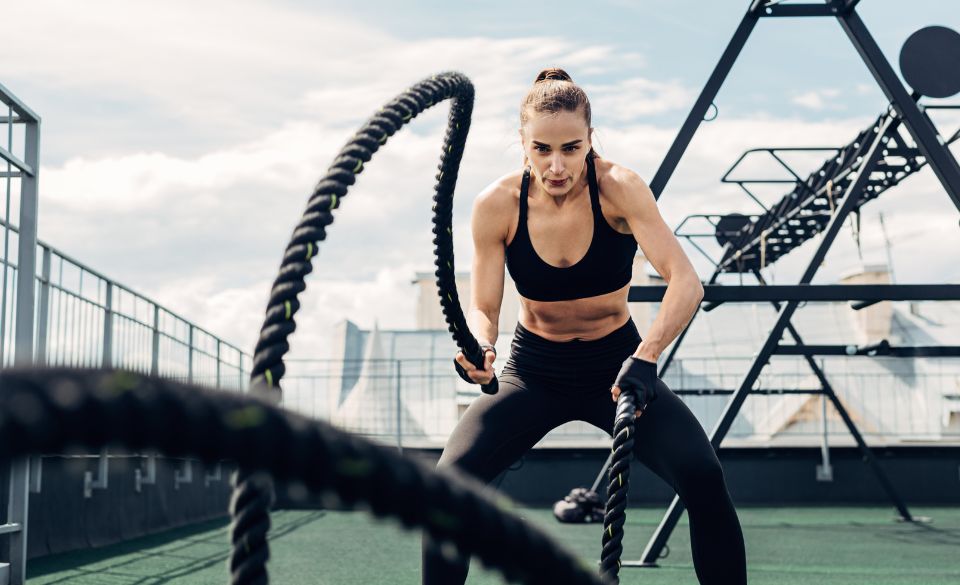
Top 10 Frequently Asked Fitness Questions – Answered
Page Contents
- 1. How many days a week should I work out?
- 2. Is it better to do cardio or strength training?
- 3. Should I eat before or after a workout?
- 4. How can I stay motivated to exercise regularly?
- 5. Can I target fat loss in specific areas?
- 6. Is it necessary to take supplements for fitness?
- 7. How can I prevent muscle soreness after a workout?
- 8. Can I exercise when I’m sick?
- 9. How long does it take to see results from exercise?
- 10. What is the best way to stay hydrated during workouts?
Hello, fitness enthusiasts! It’s time to tackle the most frequently asked fitness questions that often linger in our minds. From workout routines to nutrition and everything in between, we’ll provide answers to the top 10 questions that can help you on your fitness journey. So, let’s dive right in and find the solutions to these burning inquiries!
1. How many days a week should I work out?
The ideal number of workout days per week varies depending on your fitness goals, current fitness level, and available time. For general health and maintenance, aim for at least 150 minutes of moderate-intensity aerobic activity or 75 minutes of vigorous-intensity aerobic activity spread throughout the week. It’s also important to include strength training exercises at least two days a week to maintain muscle strength and bone health.
2. Is it better to do cardio or strength training?
Both cardio and strength training are important for overall fitness. Cardio exercises, such as running, swimming, or cycling, improve cardiovascular health and burn calories. Strength training, on the other hand, helps build muscle, increase metabolism, and improve strength. The best approach is to incorporate a combination of both cardio and strength training into your fitness routine for optimal results.
3. Should I eat before or after a workout?
The timing of your meals depends on personal preference and the type of workout you’ll be doing. If you prefer exercising on an empty stomach, a light snack or small meal before your workout may be sufficient. However, if you need some fuel to perform at your best, aim to eat a balanced meal containing carbohydrates and protein about 1-3 hours before your workout. After exercising, it’s important to refuel your body with a combination of protein and carbohydrates to aid in recovery and replenish energy stores.
4. How can I stay motivated to exercise regularly?
Staying motivated can be challenging, but there are strategies to help maintain consistency. Set specific, realistic goals and track your progress. Find activities you enjoy and vary your routine to keep things interesting. Join a fitness community or find an exercise buddy for support and accountability. Celebrate your achievements along the way, and remember to listen to your body and give yourself rest days when needed. Ultimately, finding intrinsic motivation and reminding yourself of the benefits of exercise can help you stay committed to your fitness journey.
5. Can I target fat loss in specific areas?
While spot reduction is a common fitness myth, it’s not possible to target fat loss in specific areas of the body through exercise alone. Fat loss occurs throughout the body as a result of overall calorie expenditure. To reduce body fat, you need to create a calorie deficit through a combination of regular exercise, a balanced diet, and a healthy lifestyle. This will lead to overall fat loss, and eventually, you’ll notice changes in different areas of your body.
6. Is it necessary to take supplements for fitness?
Supplements are not essential for everyone, as a well-balanced diet can usually provide the necessary nutrients. However, certain individuals, such as athletes or those with specific dietary restrictions, may benefit from supplementation. It’s important to consult with a healthcare professional or registered dietitian before starting any supplements to ensure they are appropriate for your needs and goals.
7. How can I prevent muscle soreness after a workout?
Muscle soreness is a common occurrence, especially after intense or new workouts. To help prevent or alleviate muscle soreness, ensure you warm up before exercise and cool down afterward. Gradually increase the intensity and duration of your workouts to allow your body to adapt. Stay hydrated, fuel your body with proper nutrition, and consider incorporating active recovery activities, such as stretching or foam rolling, into your routine.
8. Can I exercise when I’m sick?
When you’re sick, it’s important to prioritize rest and recovery to allow your body to heal. Exercising when you’re sick can potentially prolong the illness or lead to complications. Mild to moderate exercise may be possible with minor symptoms like a runny nose or congestion, but listen to your body and reduce the intensity and duration of your workouts. If you have a fever, body aches, or other severe symptoms, it’s best to skip exercise and focus on getting well.
9. How long does it take to see results from exercise?
The time it takes to see results varies depending on various factors, including your starting point, fitness level, and consistency of your exercise routine. Generally, you may start to notice improvements in your cardiovascular fitness within a few weeks. Changes in body composition and muscle tone may take longer, often several months of consistent training. Remember that fitness is a journey, and progress is not always linear. Stay committed, be patient, and focus on the positive changes happening inside and outside of your body.
10. What is the best way to stay hydrated during workouts?
Staying hydrated during workouts is crucial for optimal performance. Drink water before, during, and after your workout to maintain hydration levels. The amount of water needed varies depending on factors such as duration and intensity of exercise, sweat rate, and environmental conditions. As a general guideline, aim to drink about 8-10 ounces of water every 15-20 minutes during exercise. If you’re engaging in prolonged or intense workouts, consider including electrolyte-rich beverages or sports drinks to replenish lost fluids and minerals.
In conclusion, these top 10 frequently asked fitness questions cover a range of topics that are often on the minds of fitness enthusiasts. Remember that fitness is a personal journey, and what works for one person may not work for another. It’s important to find what suits your individual needs, preferences, and goals. Incorporate a combination of cardio and strength training, fuel your body with nutritious meals, stay hydrated, listen to your body, and be consistent in your efforts. By doing so, you’ll be well on your way to achieving a healthy and active lifestyle.



